A FOUND POEM IN Ask ENCYCLOPEDIA
"He crossed the border at Portal,
and ended up on our doorstep,
and Mama always gave him something,
a sandwich or a piece of bread,"
Mom told me, and that's how
the word itinerant came into my life
when I was a child, born
into North Dakota extremes
looking out the car window
for Northern Lights.
Itinerant labor. Traveling workers
during the Great Depression. Slowly
collecting what the word held as I grew.
The Great Depression no longer defined
the word. No fixed home. From late 16th Century,
from the verb itinerari, from Latin,
itiner--journey, road. With types--
drifters, rogues, rovers, vagabonds, vagrants.
Including perpetual travelers,
including illegal aliens, migrants
nomads--including hunter-gatherers
and gypsies. Hobos, including tramps,
bums, derelicts, refugees and displaced persons.
Including street people, street children,
paupers, squatters, waifs, schnorrers,
and world citizens. Throughout history
and today: Freight Train Riders of America,
Romani, uncontacted peoples. Afar
people in Horn of Africa, Bajau of Philippines,
Banjara of India, Bedouin desert people,
Beja of North Africa, Bushmen of Southern Africa,
Dorn people in North Africa,
Eurasian nomads of Eurasian Steppe,
Ghilzai in South-Central Asia,
Indigenous Australians,
Indigenous Norwegian Travellers
of the Americas, Irish Travellers,
Kuchi people of Afghanistan,
Nomads of India, Pygmy peoples in Equatorial Africa,
Quinqui in northern Spain,
Scottish Travellers, Yeniche people of Europe,
Carnies, Hippies, Jossers,
Kobzari--musicians of Ukraine,
Lighterman--bargees in England,
Peredvizhinki--realist artists of Russia,
Swagman, Circuit riders, Gyrovagues,
Bhikkus, Mendicants of Christianity,
Hinduism, Islam, Jainism, Buddhism,
Pilgrims, and Sadhus. The notables:
Alexander Supertramp, Kinga Freespirit,
Albert Einstein, Democritus,
Diogenes of Sinope, Friedrich Nietzsche,
Jean-Jacques Rousseau, Mohandas Karamanchand Gandhi,
Paul Erdos, Guatama Buddha, Historical Jesus.
See Jack Keruoac. Because he asked me,
I said, Yes, I do identify with the word,
itinerant. Thank you. It was lunch time
and I was kindergarten teacher for a day,
filling in for my daughter, who was ill.
I was dressed up in slacks. And sitting in
with Christian ministers at a lunch meeting,
when asked. Yes, I think so. They're my people.
The Blind Girl, 1856, depicting two vagrants,
is a painting by John Everett Millais--
two sisters, a blind musician, concertina
on her lap, resting by road after a rainstorm,
travelling. An allegory of the senses,
blind and sighted, before a double rainbow.
A tortoise shell butterfly rests
on the blind girl's shawl. The sheet around
her neck, captioned. Pity the Blind.
Spared, chosen, never worthy, graced.
Jim Bodeen
March 28, 2011
MOUNTAIN QUESTIONS
Do you want to be on the mountain?
I ask my son when he gets up to pee.
I am on the mountain, the man says.
Husband, father, even grandpa's job--
keep stepping back. Don't lose courage.
Fragments of the story.
Fragments of the poem.
Cover-up and exposure in snow
Wind sweeps the mountain.
Old Man's Beard blows from fir
catching its green tail in its mouth
and wheels over snow, snow-bound,
life already over and done.
A fire for someone already lost.
Men and women surround the table
talking about the immigrant. One,
an acquaintance with a collar
from the mountain church years ago,
looks at me when I come in.
Jim, he says, when I introduce myself,
You look like a transcient.
Where have you been? I remember you
with the Mexicans, carrying poems.
But you? I thank him for his eyes.
Jim Bodeen
24 March 2011
MAKING SNOW CAMP
Cut steps on snow.
Others join on us on the mountain.
The avalanche shovel
is the favorite toy of children.
Stronger than children, just their size,
and light enough to dig tunnels.
Karen walks to us on snowshoes
and our story returns. Off skis,
the child's work, too, is done.
Snow piles beyond their reach
asking for nothing in return,
a playing field in a short season.
Jim Bodeen
20 March 2011
TRAVELING ON SKIS
--for Ethel and Pastor Harald Sigmar family
Will there be bunnies?
In Heaven? the granddaughter asks.
Bunnies feel our love when we hold them.
We feel theirs. I would guess so--all that is love
will be in Heaven. Nothing that isn't.
Heaven is only love where ever love is.
What do you think? My friend in the pulpit
talks about the darkness of Easter morning.
Theories of testimony and art
surface on skis. My dog wants to ride, too.
The mothership carries us. On the chairlift
I tell the grandson about the pastor
who knows his name, who took off his clothes
to show his Superman shirt, asking about Superheroes.
The grandson says, Superman is real
because the fact is, I saw his picture
in the newspaper. The Sermon on the Mount
could be one of the Upanishads.
The spoon never knows the taste
of the soup, but the tongue does.
Juan Mascaro translates The Dhammapada,
John of the Cross and Teresa of Avila in his ear,
walking the Extremadura in ecstasy.
My friends, holy men all, poets
and collared, so many Bodhis.
Karen and Carole. And what of these children?
At my old friend's funeral,
the sermon coming from Harvey Blomberg
who took me to Glide Memorial in the City
35 years ago, who showed me street people
singing Jesus' praise, saying this morning,
Those of Easter faith know
that nothing is packaged.
We don't have clean houses.
Ethel said, That's what candles are for.
That first Easter, dark and confused--
Women doing what they were told.
What to do--following rules.
And following rules, told that rules
don't exist anymore. Women, first to hear.
Jim Bodeen
19 March 2011
THE MOUNTAIN, THE MOUNTAIN
And so on days like these, we learn
what our friend carried those years,
determining her decisions
to walk with us, chin up, laughing,
Lang Amma, great grandmother
in Icelandic. The daughter talks.
"Mom never desired a clone,
or a child conforming." No natural
border separating Saskatchewan
and Dakota--tight weave of rooted grass
holding against losses
on the day of remembering
on the mountain. A man skiing
with grandchildren. In the poorest
countries, families give their youngest
child to grandparents in old age
to keep them from loneliness.
The boy says, "Mama doesn't like
me to whistle. She says it hurts her throat."
He scoops a handful of snow
between his skis. It's hard to ski
the steeps and eat snow at the same time.
News reports from Japan, all bad.
49-year old Kyoko Nambu
stands on a hillside overlooking
her ruined town of Soma,
"Our house is gone, and now
they're telling us to stay indoors."
Some say that I must come down
from the mountain. Zev asks me again,
because I ask him, "What is a mountain?"
The Jewish poet writes me in response,
"Does the dirt inside a mountain
know how high up it is?
If you asked it, wouldn't it say,
'What on earth do you mean?'"
At night I play the song over and over.
Leonard Cohen's, The Traitor.
The dreamers ride against the men of action,
Oh see the men of action falling back.
Our century is not through with us yet.
The granddaughter looks down
at her skis, and across the terrain park
where snowboarders ride rails
somersaulting in snow. "Grandpa,"
she asks, "Are you
going to get me long skis?
Or can I get a snowboard?
Jim Bodeen
17 March 2011
Subscribe to:
Post Comments (Atom)



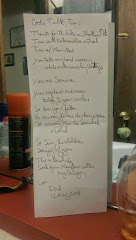
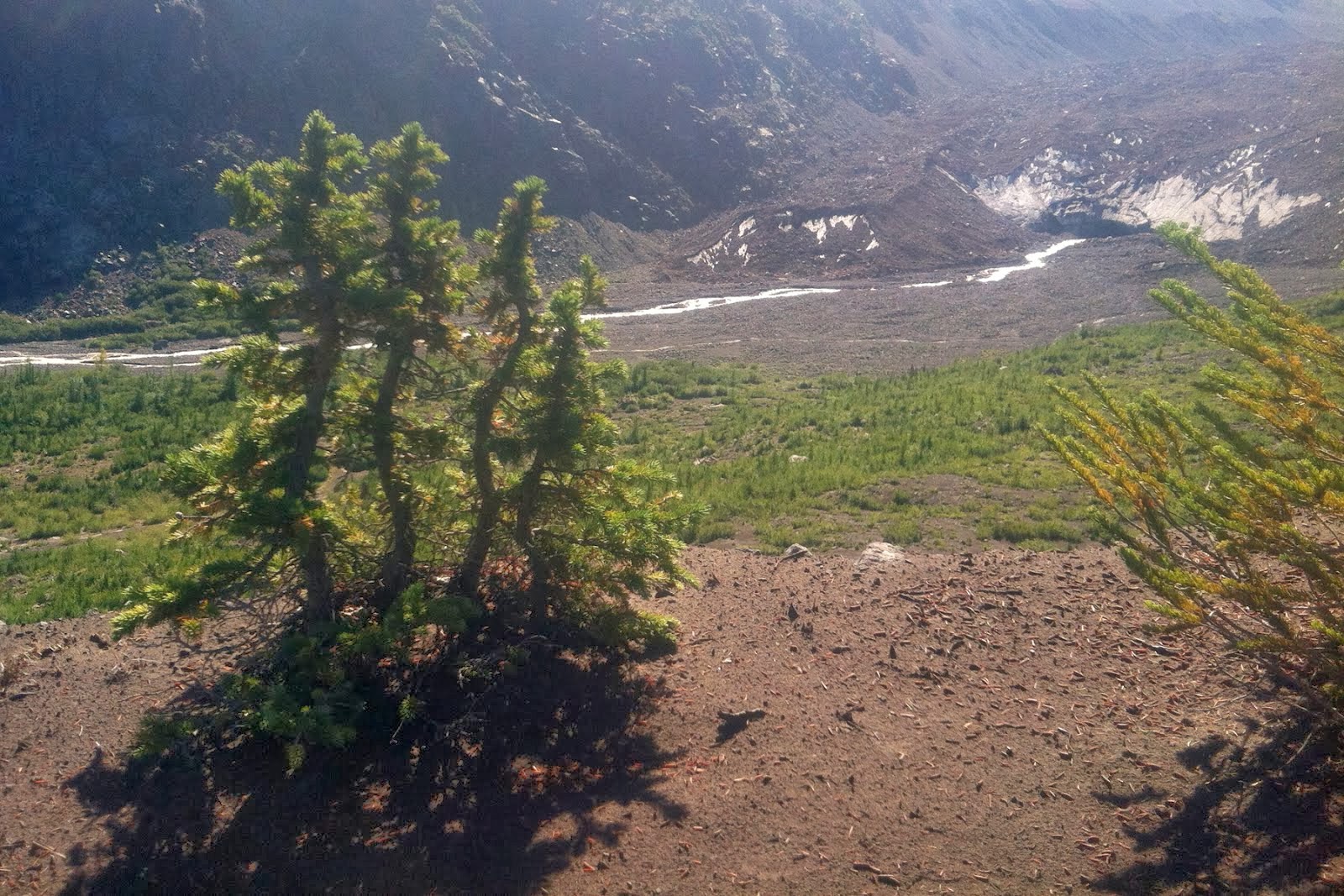
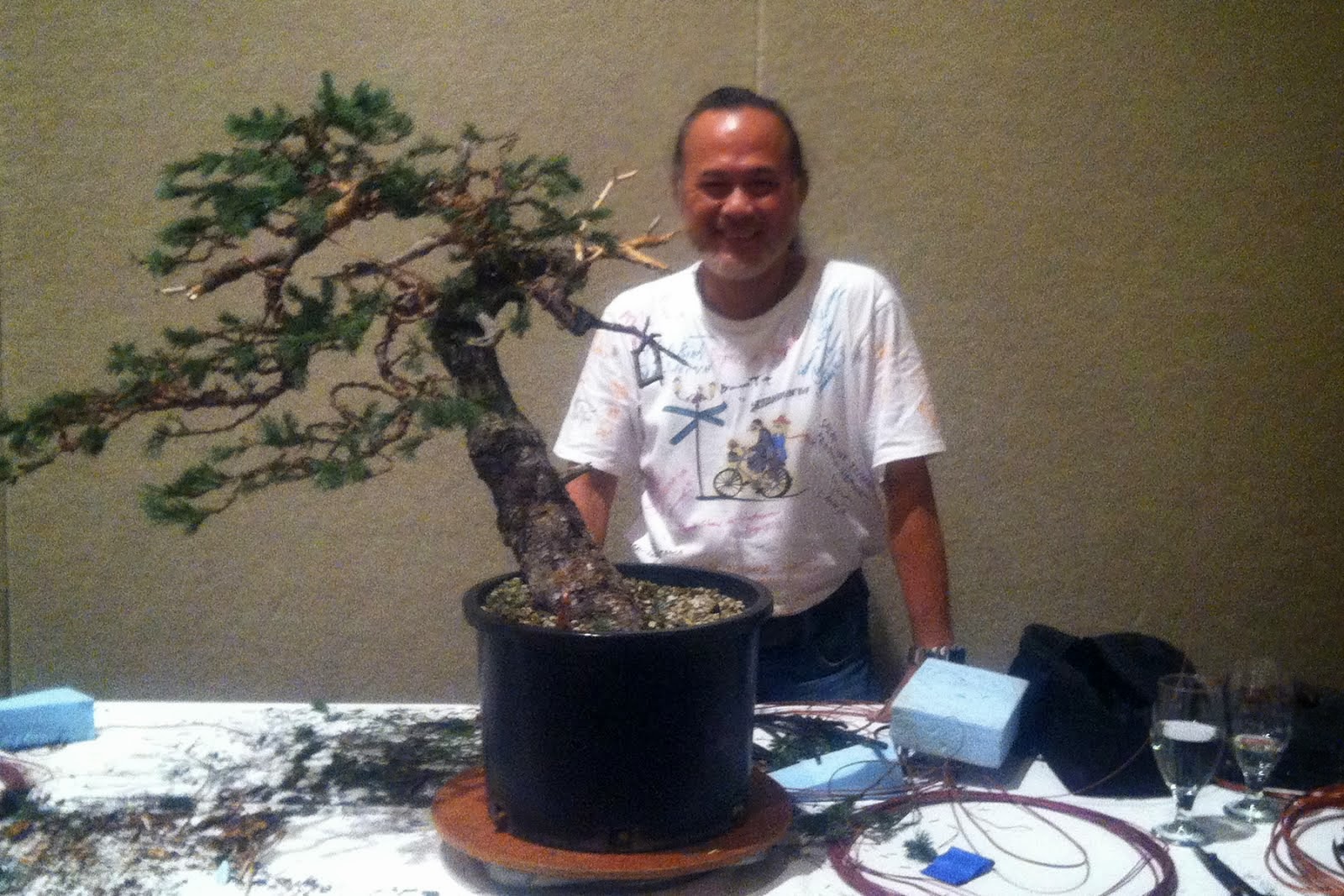
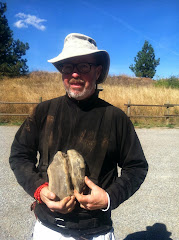
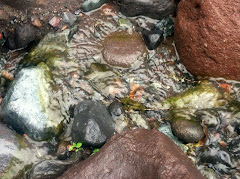

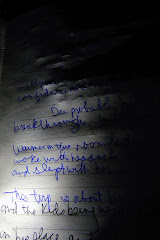

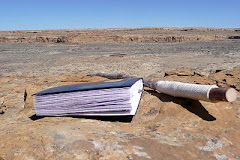
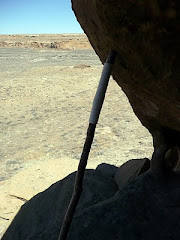

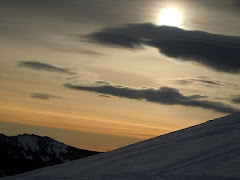
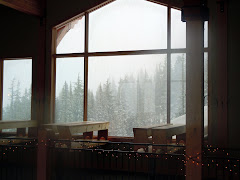


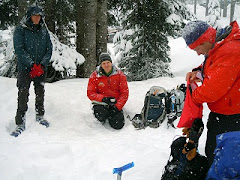
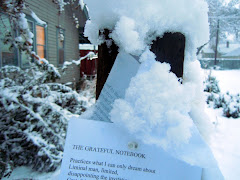

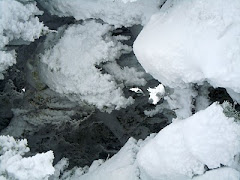
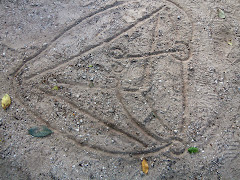
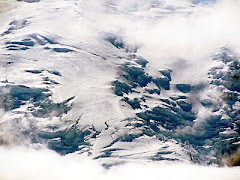











for that last question, consider the icelandic mother's attitude. kjm
ReplyDeleteI have to read others words after I read my fathers. I learn more than I should and am blessed.
ReplyDeletegreat end of march poems, calls to mind my grandmother's edgy talk of the kids taken by travelers, oh how we intake those little wacked stories. snowbeard is much more fitting than snowbird. kjm
ReplyDelete